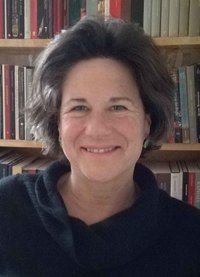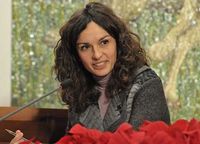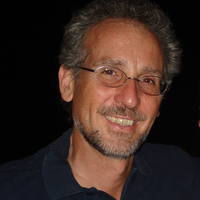Introducing the New Professors Teaching at the RGG in Spring 2018
 Prof. Daria Borghese, teaching the All Roads Lead to Rome course
Prof. Daria Borghese, teaching the All Roads Lead to Rome course
Prof. Daria Borghese, an Art Historian teaching the All Roads Lead to Rome Course
Daria Borghese has taught in Italy (The American University in Rome, The Richmond Rome Center, Assumption College and University of North Carolina) and in the U.S.A. (Boston College) courses that range from Italian Renaissance to Baroque Art, with a focus on the role of patrons, the main interest of her research. Her continuing exploration of a city that requires several lifetimes to be truly known nourishes her research and her teaching, that is conducted mostly on-site to give students the opportunity to experience first-hand the emotion of discovering masterpieces at the center of Western Civilization.
In the Spring Semester 2018 she is teaching at the Rome Global Gateway the All Roads Lead to Rome course, that links history, art history and literature. She revised the syllabus adding her perspective as an art historian, aiming at increasing the visual analysis and the development of critical skills of the course’s students.
She earned a Specializzazione in Art History from the Rome University La Sapienza and a Perfezionamento from the University College London.
Prof. Flavia Marcacci Teaching to AME Students the Interplay between Science, Philosophy and Theology
 Prof. Flavia Marcacci, teaching to AME students the Interplay between Science, Philosophy and Theology
Prof. Flavia Marcacci, teaching to AME students the Interplay between Science, Philosophy and Theology
Flavia Marcacci is Professor of History of Scientific Thought at the Pontifical Lateran University.
She is teaching the An Intelligible Universe: the Interplay between Science, Philosophy, and Theology course to AME students in Rome.
In her two PhDs, one philosophical (at the Pontifical Lateran University) and one scientific (at Carlo Bò University), she focused on the study of ancient and modern science, especially on aspects related to mathematical, logical and physical disciplines. She is member of the Scientific Committee of the International Summer School for Sciences, History and Philosophy of Sciences (University of Lille, France) and she has collaborated with the University of St. Thomas (Minneapolis) for CEPOS (Catholic Engagement in Philosophy Of Science) conferences. She is a member of the Scientific Committee of the Science & Faith Foundation (Pontifical Council for Culture) and is Vice-Director of IRAFS (International Research Area on Foundations of the Sciences) Research Area at the Lateran University.
Author of various articles, monographs and collected books, she is publishing now a volume on the astronomy of the Jesuit Giovanni Battista Riccioli (1598-1671), a historical case that raises deep philosophical questions about the nature of science.
Flavia, can you tell us more about your course and the connection that exists beween science, philosophy and theology? Can they work together? How do human beings acquire knowledge?
Scientific rationality can be philosophically justified, to be more aware of how the work of science and engineering is practicing, see its limitations and development possibilities. However, "All men and women are in some sense philosophers and have their own philosophical conceptions with which they direct their lives" (Fides et ratio 30). Philosophy is a bridge to explore borderline issues that both science and theology investigate: what is life, what is creation, why there is order in nature.
Philosophy is a bridge to explore borderline issues that both science and theology investigate: what is life, what is creation, why there is order in nature.
The course An Intelligible Universe: the Interplay between Science, Philosophy, and Theology offers the opportunity to reflect systematically on these problems: first, it provides general elements of the philosophy of science useful to organize answers that are not naive, and to deal more closely with questions common to science and theology, so interesting for those who practice scientific activity but also for the life of every man and every woman.
The SoA Presents their New Professors for Spring 2018
 Prof. Paolo Vitti, teaching at the SoA the Roman Builders at Work course
Prof. Paolo Vitti, teaching at the SoA the Roman Builders at Work course
The Rome Studies Program welcomed new faculty member Paolo Vitti this Spring. Vitti earned both his undergraduate and graduate degrees at La Sapienza University in Rome, and his doctorate at Aristotle University of Thessalonica in Greece. His dissertation topic is Roman Vaulted Construction in the Imperial Period. The Organization of the Construction and Dissemination of the Building Techniques in the Peloponnese. Architect and historian, Vitti’s areas of interest include ancient and modern architecture, restoration of cultural heritage sites, and ancient construction techniques. In addition to Vitti’s research projects, he is also a graduate instructor of ancient architecture the University of Roma Tre.
This Spring the School of Architecture Rome Studies Program Vitti will teach a structures course entitled, Roman Builders at Work.
Prof. Maddalena Scimemi returns this semester to teach Architectural History. She will take the undergraduate and graduates for special visits at the Vatican Museums and has invited esteemed Art and Architecture historian and scholar Prof. Howard Burns to speak at Notre Dame on January 29th. Prof. Cammy Brothers, from Northeastern University, will also lecture as a guest of Scimemi’s in the month of March.
Prof. Brothers specializes in Italian Renaissance and Mediterranean Architecture and is the author of Michelangelo, Drawing and the Invention of Architecture.